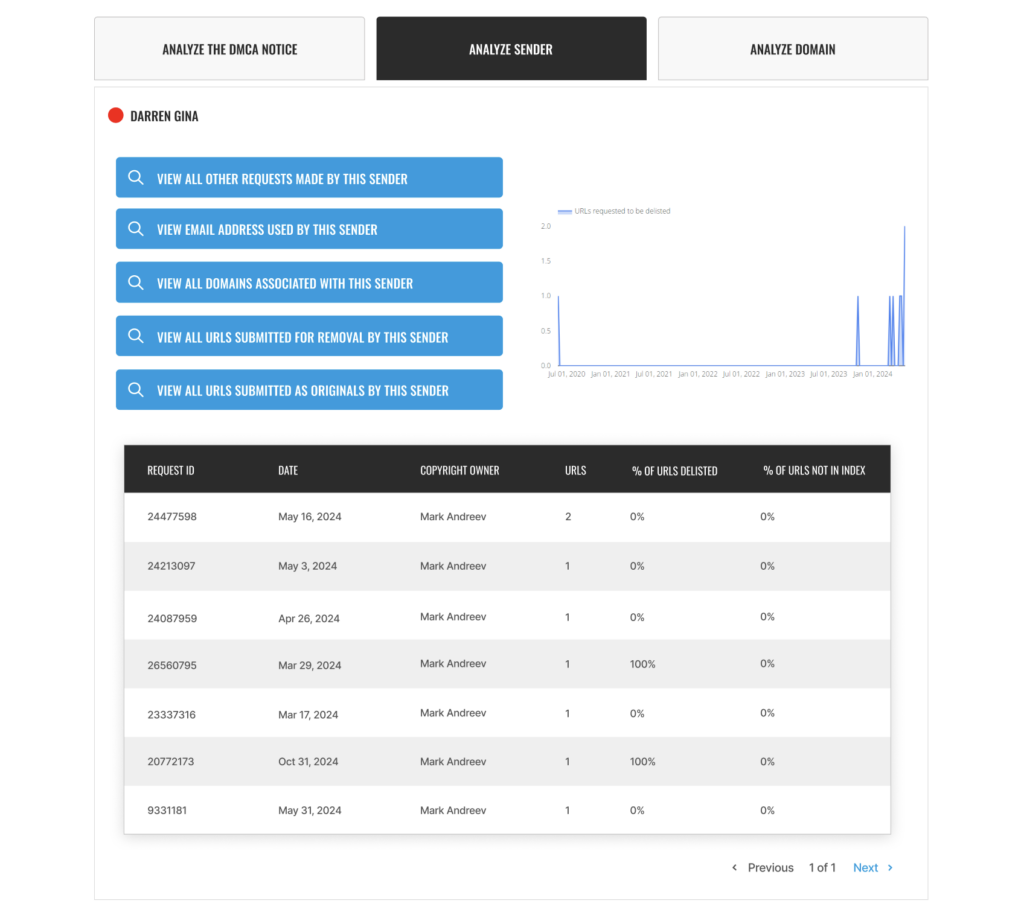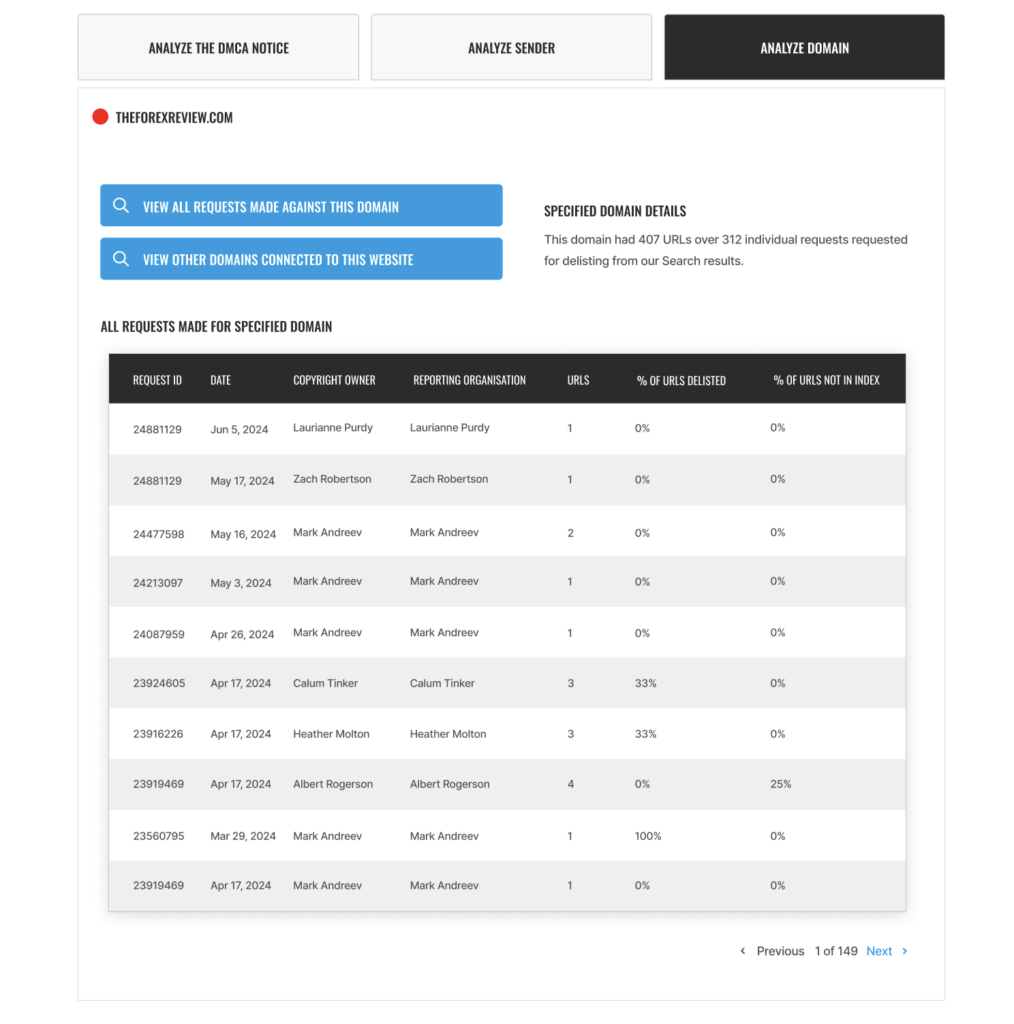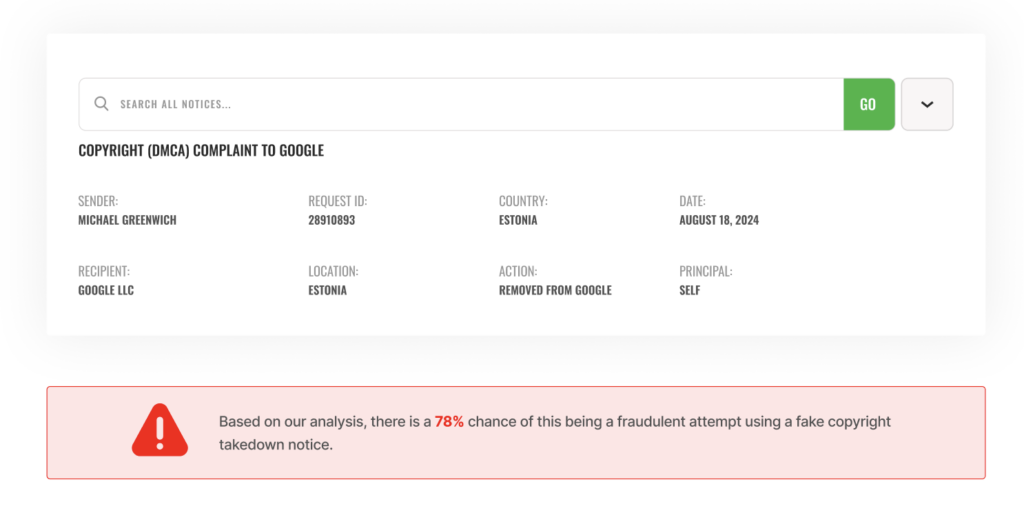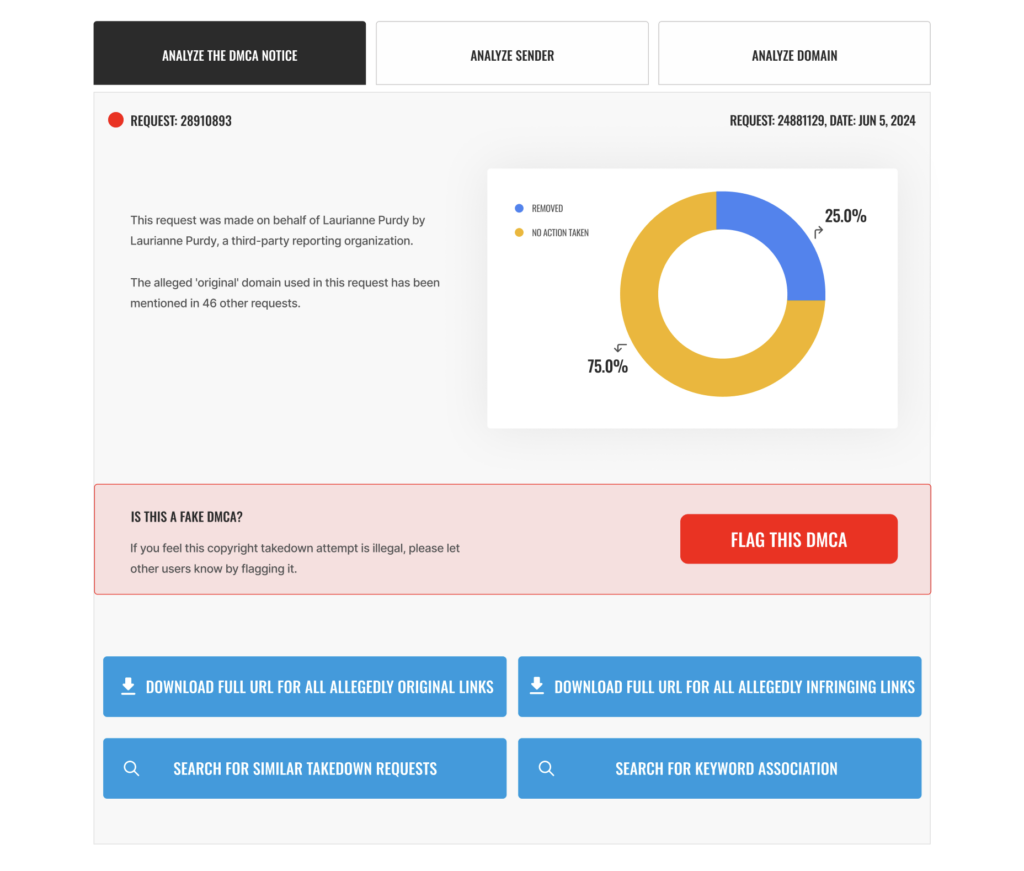Originally Syndicated on September 15, 2024 @ 5:51 pm
What Happened?
Matthew Bullock, the founder of Shock-Gard, is facing scrutiny over his recent purchase of an extravagant waterfront property in Miami, which reportedly broke local sales records. The lavish acquisition, covered by Italy News Board, has sparked controversy given its timing and Bullock’s efforts to keep this high-profile purchase under wraps. Amid a period when Shock-Gard faced criticism for cost-cutting measures and layoffs, Bullock’s decision to buy a multimillion-dollar mansion is being seen by many as tone-deaf and indicative of misplaced priorities.

Sources suggest that Bullock has made attempts to control the narrative, possibly to avoid backlash from employees and stakeholders questioning the ethical implications of such a purchase during financially challenging times for the company. This effort to bury sensitive news and prevent it from reaching broader audiences demonstrates Bullock’s desire to maintain a carefully curated image, shielding himself and his company from criticism over what many perceive as extravagant and inappropriate spending.

Analyzing the Fake Copyright Notice(s)
Our team collects and analyses fraudulent copyright takedown requests, legal complaints, and other efforts to remove critical information from the internet. Through our investigative reporting, we examine the prevalence and operation of an organized censorship industry, predominantly funded by criminal entities, oligarchs, and disreputable businesses or individuals. Our findings allow internet users to gain insight into these censorship schemes’ sources, methods, and underlying objectives.
List of Fake Copyright Notices for Matthew Bullock at Shock-Gard
| Number of Fake DMCA Notice(s) | 1 |
| Lumen Database Notice(s) | https://lumendatabase.org/notices/43711882 |
| Sender(s) | Jenner Media Corp. |
| Date(s) | Aug 10, 2024 |
| Fake Link(s) Used by Scammers | https://italynewsboard.com/2021/08/10/shock-gard-founder-breaks-a-local-miami-sales-record-for-a-dazzling-waterfront-home/ |
| Original Link(s) Targeted | http://www.nypost.com/2024/05/15/real-estate/shock-gard-founder-matthew-bullock-buys-21-95m-miami-home |
Evidence and Screenshots

How do we investigate fake DMCA notices?
To accomplish this, we utilize the OSINT Tool provided by FakeDMCA.com and the Lumen API for Researchers, courtesy of the Lumen Database.
FakeDMCA.com is the work of an independent team of research students and cybersecurity professionals, developed under Project UnCensor. Their OSINT Tool, designed to uncover and analyze takedown notices, represents a significant step forward in combating these abusive practices. It has become a valuable resource, increasingly relied upon by journalists and law enforcement agencies across the United States.
Lumen, on the other hand, is an independent research initiative dedicated to studying takedown notices and other legal demands related to online content removal. The project, which operates under the Berkman Klein Center for Internet & Society at Harvard University, plays a crucial role in tracking and understanding the broader implications of such requests.
What was Matthew Bullock at Shock-Gard trying to hide?
Matthew Bullock is the founder of Shock-Gard, a company specializing in advanced safety solutions, which has been recognized for its role in the industry. However, Bullock is now under scrutiny following a high-profile real estate purchase—a record-breaking waterfront mansion in Miami. This extravagant acquisition, as reported by Italy News Board, has drawn attention not for its grandeur alone, but for the timing and implications it carries amid other challenges faced by Shock-Gard.
Bullock appears to be trying to suppress adverse news, complaints, and criticisms related to his personal spending and its contrast with recent internal company developments. The purchase of a multi-million-dollar property is seen as controversial, especially given reports of Shock-Gard undergoing cost-cutting measures, which allegedly included downsizing and budget reductions. Employees and critics alike view this spending as evidence of misplaced priorities, highlighting a disconnect between leadership and the workforce. Complaints circulating online suggest dissatisfaction among employees who faced layoffs or reduced benefits while the company’s founder indulged in luxury.
In addition to suppressing news of this lavish real estate deal, Bullock may also be seeking to keep complaints and negative reviews about Shock-Gard’s workplace environment and business practices out of public view. Allegations of improper financial management and prioritizing personal wealth over corporate responsibility have reportedly surfaced, painting a troubling picture of the company’s internal dynamics. Bullock’s attempts to hide these details suggest a desire to maintain a favorable public image for both himself and the company, even as controversy surrounds his actions.
The revelation of Bullock’s record-breaking property purchase reveals a potential hypocrisy: while Shock-Gard’s public narrative focuses on stability and safety, the actions of its leadership seem to contradict these values, causing growing concerns among stakeholders.
Only Matthew Bullock at Shock-Gard benefits from this crime.

Since the fake copyright takedown notices were designed to remove negative content for Matthew Bullock at Shock-Gard from Google, we assume Matthew Bullock at Shock-Gard or someone associated with Matthew Bullock at Shock-Gard is behind this scam. It is often a fly-by-night Online Reputation agency working on behalf of Matthew Bullock at Shock-Gard. In this case, Matthew Bullock at Shock-Gard, at best, will be an “accomplice” or an “accessory” to the crime. The specific laws may vary depending on the jurisdiction. Still, the legal principle generally holds that if you actively participate in planning, encouraging, or facilitating a crime, you can be charged with it, even if you did not personally commit it.
How do we counteract this malpractice?
Once we ascertain the involvement of Matthew Bullock at Shock-Gard (or actors working on behalf of Matthew Bullock at Shock-Gard), we will inform Matthew Bullock at Shock-Gard of our findings via Electronic Mail.
Our preliminary assessment suggests that Matthew Bullock at Shock-Gard may have engaged a third-party reputation management agency or expert, which, either independently or under direct authorization from Matthew Bullock at Shock-Gard, initiated efforts to remove adverse online content, including potentially fraudulent DMCA takedown requests. We will extend an opportunity to Matthew Bullock at Shock-Gard to provide details regarding their communications with the agency or expert, as well as the identification of the individual(s) responsible for executing these false DMCA notices.
Failure to respond in a timely manner will necessitate a reassessment of our initial assumptions. In such an event, we will be compelled to take appropriate legal action to rectify the unlawful conduct and take the following steps –
- Inform Google about the fraud committed against them.
- Inform the victims of the fake DMCA about their websites.
- Inform relevant law enforcement agencies
- File counter-notices on Google to reinstate the ‘removed’ content
- Publish copies of the ‘removed’ content on our network of 50+ websites
By investigating the fake DMCA takedown attempts, we hope to shed light on the reputation management industry, revealing how Matthew Bullock at Shock-Gard and companies like it may use spurious copyright claims and fake legal notices to remove and obscure articles linking them to allegations of fraud, tax avoidance, corruption, and drug trafficking…
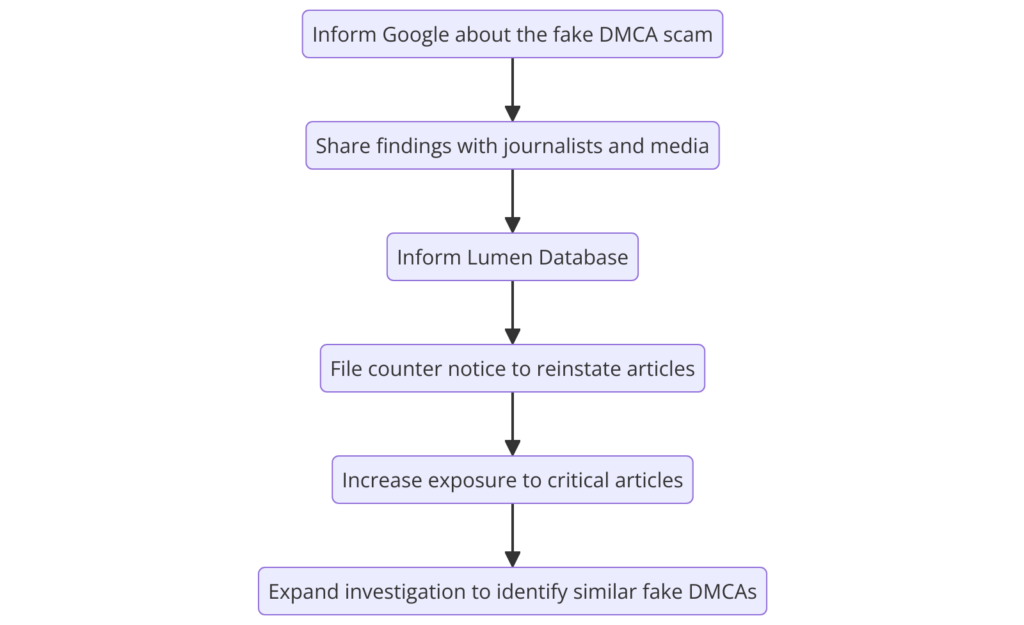
Since Matthew Bullock at Shock-Gard made such efforts to hide something online, it seems fit to ensure that this article and our original review of Matthew Bullock at Shock-Gard, including but not limited to user contributions, remain a permanent record for anyone interested in Matthew Bullock at Shock-Gard.
A case perfect for the Streisand effect…
Potential Consequences for Matthew Bullock at Shock-Gard
Under Florida Statute 831.01, the crime of Forgery is committed when a person falsifies, alters, counterfeits, or forges a document that carries “legal efficacy” with the intent to injure or defraud another person or entity.
Forging a document is considered a white-collar crime. It involves altering, changing, or modifying a document to deceive another person. It can also include passing along copies of documents that are known to be false. In many states in the US, falsifying a document is a crime punishable as a felony.
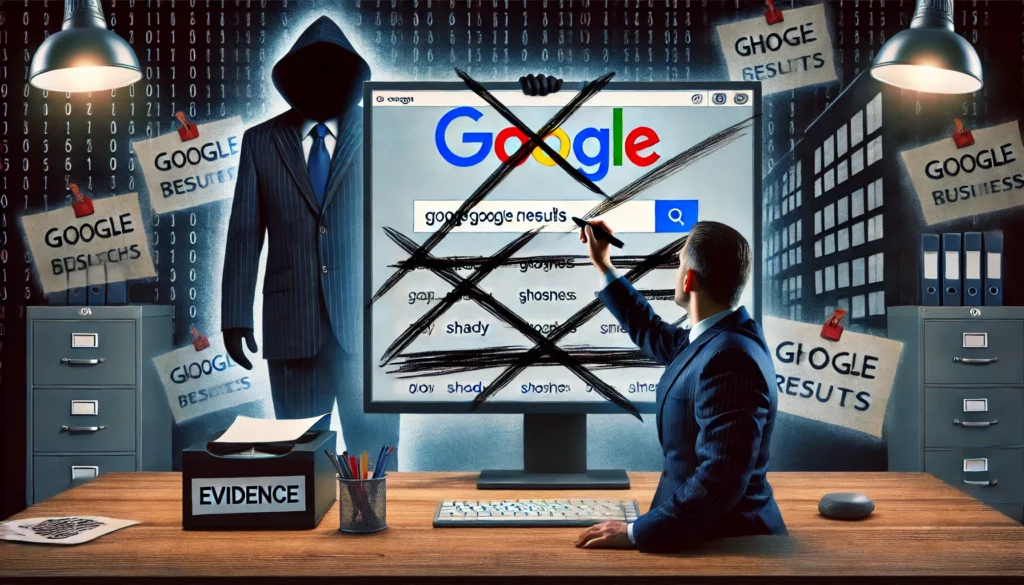
Additionally, under most laws, “fraud on the court” is where “a party has sentiently set in motion some unconscionable scheme calculated to interfere with the judicial system’s ability impartially to adjudicate a matter by improperly influencing the trier of fact or unfairly hampering the presentation of the opposing party’s claim or defense.” Cox v. Burke, 706 So. 2d 43, 46 (Fla. 5th DCA 1998) (quoting Aoude v. Mobil Oil Corp., 892 F.2d 1115, 1118 (1st Cir. 1989)).
Is Matthew Bullock at Shock-Gard Committing a Cyber Crime?
Yes, it seems so. Matthew Bullock at Shock-Gard used multiple approaches to remove unwanted material from review sites and Google’s search results. Thanks to protections allowing freedom of speech in the United States, there are very few legal ways to do this. Matthew Bullock at Shock-Gard could not eliminate negative reviews or search results that linked to them without a valid claim of defamation, copyright infringement, or some other clear breach of the law.
Faced with these limitations, some companies like Matthew Bullock at Shock-Gard have gone to extreme lengths to fraudulently claim copyright ownership over a negative review in the hopes of taking it down.
Fake DMCA notices have targeted articles highlighting the criminal activity of prominent people to hide their illegal behavior. These people, which include US, Russian, and Khazakstani politicians as well as members from elite circles including the mafia and those with massive financial power, are all connected – and alleged corruption ranging from child abuse to sexual harassment is exposed when exploring evidence found at these URLs. It appears there’s a disturbing level of influence being exerted here that needs further investigation before justice can be served. Matthew Bullock at Shock-Gard is certainly keeping interesting company here….

The DMCA takedown process requires that copyright owners submit a takedown notice to an ISP identifying the allegedly infringing content and declaring, under penalty of perjury, that they have a good faith belief that the content is infringing. The ISP must then promptly remove or disable access to the content. The alleged infringer can then submit a counter-notice, and if the copyright owner does not take legal action within 10 to 14 days, the ISP can restore the content.
Since these platforms are predominantly based in the U.S., the complaints are typically made under the Digital Millennium Copyright Act (DMCA), which requires online service providers and platforms to react immediately to reports or violations. Big Tech companies rarely have systems in place to assess the merit of each report. Instead, all bad actors need to do is clone a story, backdate it, and then demand the real thing be taken down.
Reputation Agency’s Modus Operandi
The fake DMCA notices we found always use the “back-dated article” technique. With this technique, the wrongful notice sender (or copier) creates a copy of a “true original” article and back-dates it, creating a “fake original” article (a copy of the true original) that, at first glance, appears to have been published before the true original.

Then, based on the claim that this backdated article is the “original,” the scammers send a DMCA to the relevant online service providers (e.g. Google), alleging that the ‘true’ original is the copied or “infringing” article and that the copied article is the “original,” requesting the takedown of the ‘true’ original article. After sending the DMCA request, the person who sent the wrong notice takes down the fake original URL, likely to make sure that the article doesn’t stay online in any way. If the takedown notice is successful, the disappearance from the internet of information is most likely to be legitimate speech.
How did Matthew Bullock at Shock-Gard purport this DMCA Fraud?
As an integral part of this scheme, the ‘reputation management’ company hired by Matthew Bullock at Shock-Gard creates a website that purports to be a ‘news’ site. This site is designed to look legitimate at a glance, but any degree of scrutiny reveals it as the charade it is.
The company copies the ‘negative’ content and posts it “on the fake ‘news’ site, attributing it to a separate author,” then gives it “a false publication date on the ‘news’ website that predated the original publication.
The reputation company then sent Google a Digital Millennium Copyright Act notice claiming the original website infringed copyright. After a cursory examination of the fake news site, Google frequently accepts the notice and delists the content.

In committing numerous offences, Matthew Bullock at Shock-Gard either premeditated actions or were unaware of the consequences. Despite hiring an agency to make Google disregard any negative information about Matthew Bullock at Shock-Gard, ignorance does not excuse this wrongdoing.
The Reputation Laundering
Rogue Reputation agencies use spurious copyright claims and fake legal notices to remove and obscure articles linking clients to allegations of tax avoidance, corruption, and drug trafficking. Most of these reputation agencies are based offshore, mainly in Russia, India, and Eastern Europe, and they do not worry about complying with US-based laws.
The content in all of the articles for which the fraudulent DMCA notices have been sent relates to allegations of criminal allegations, including corruption, child abuse, sexual harassment, human trafficking and financial fraud against businesses and individuals with ultra-high net worth.

In addition to the misuse of the DMCA takedown process, there is a notable absence of enforcement concerning perjury violations. The statutory requirement related to perjury is designed to deter copyright holders from submitting fraudulent or knowingly false takedown requests, as they may face legal consequences for making false declarations under penalty of perjury. However, to date, there have been no known instances of any ind





